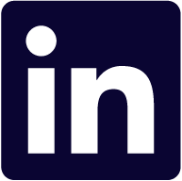7 common job interview questions for freelancers
Have you been called in for an interview for a contracting or freelancing role? Once the sole domain of the permanent recruitment process, many companies want to interview a flexible worker before signing a contract.

But these interviews differ from those conducted for a permanent position. While they’re usually not as long, they are heavily focused on the skills that you can immediately bring to the table, filling whatever skills gap necessary.
Because there typically is less time put aside to onboard you, the hiring manager will also need to know how quickly you can adapt to new processes and people, hitting the ground running.
This requires you to do your homework to prepare for likely questions and, crucially, think of examples from your work history that prove your expertise. So which questions should you prepare for?
7 job interview questions for freelancers
1. Why are you interested in this assignment?
The interview wants to know that you haven’t just taken on this assignment for the sake of it and that this role actually aligns with your career ambitions and interests. This will reassure them that, despite being a flexible worker, you will still showcase a strong level of commitment to the project.
Before the interview, ask for a copy of the job description or, if one isn’t available, ask your recruiter what specifically is required and what you’ll be doing in the role. You’ll then be able to answer this question by demonstrating how the assignment matches with your expertise and long-term career goals.
2. Tell me about a time you’ve had to quickly adjust to a new environment?
You could also explain your strategy for quickly getting up to speed in each new workplace – for example, do you learn fast by asking questions and observing the environment in order to decide how to best fit in? Know what your strategy is, and have some examples up your sleeve of a time you put it in practice.
3. Describe how you work with others
4. How do your skills prepare you for this assignment?
5. Next, expect detailed technical questions
6. Why are you a contractor or freelancer?
7. Do you have any questions?
Our over-arching advice here, would be to put as much effort into interview preparation as you would if you were interviewing for a permanent role. Flexible roles are a brilliant chance for you to network, add some quick wins and tangible results to your CV, and learn more about what you would want from a permanent employer, so why give this opportunity anything less than 100 percent?




